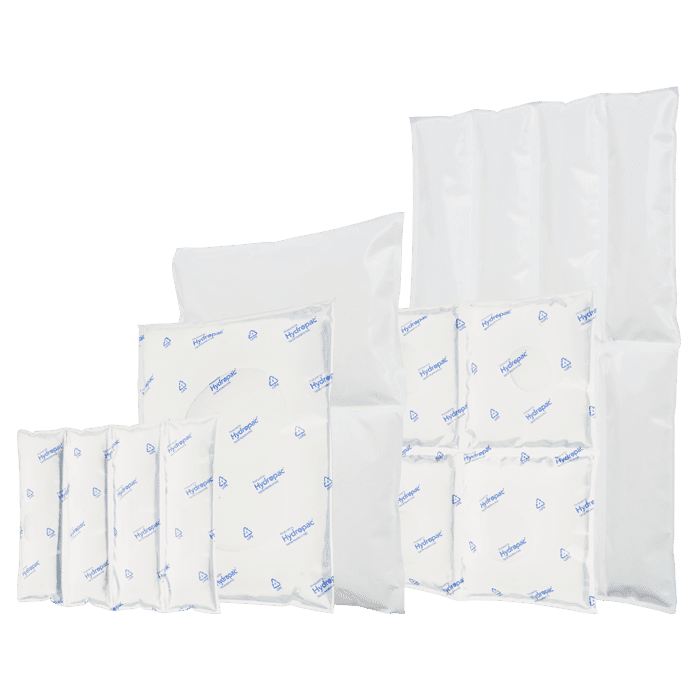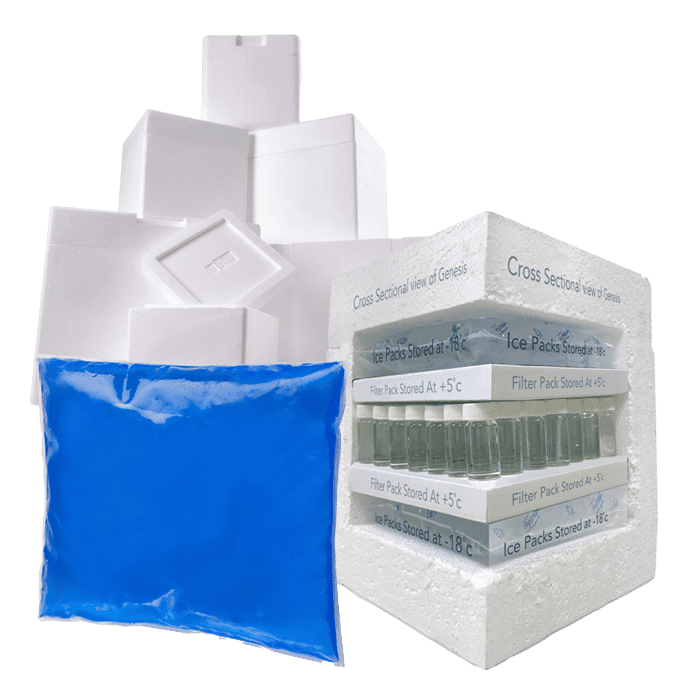“Biodegradable” – The Misleading Packaging Term
We’ve said before that the term “biodegradable” is actually an attractive way of saying “send to landfill” and the latest news from the Foodservice Packaging Association (FPA) backs this up. They are calling for the term “biodegradable” to be wiped from packaging descriptions as it is causing confusion as to whether the items in question will actually biodegrade quickly, no matter where they are disposed of. Many find that it is used interchangeably with the term “compostable”, which actually means something completely different, which in term is leading to a rise in littering as people discard products that will take hundreds of years to break down in both land and marine areas.
Custom chilled solutions for you
Hydropac offers every customer a customized solution for chilled and conditioned shipping. For example, we help a customer with limited freezing capacity to deliver gel packs frozen and ready to use, and we can manufacture almost all shapes and sizes of cooling elements. As a customer, you come first: we are here to help you.
Compostable Packaging v Biodegradable Packaging
There is a big difference between packaging that is compostable and packaging that is biodegradable. Compostable packaging breaks down in a way that is kind to the environment; for example, it will not release toxins as it deteriorates, thus causing no potential for harm to animals and soil. In fact, once broken down, it will provide the earth with nutrients, giving something back to the environment. Compostable packaging is also made of plant-based, recycled materials, so has a kinder manufacturing footprint from the start.
Biodegradable packaging materials do also break down, but they take much longer (hundreds, even thousands of years in some cases – your everyday plastic bag will take between 500-1000 years to fully deteriorate. A glass bottle, which can be easily recycled, many never break down). In addition, they release toxins into the soil on an ongoing basis, so far from protecting and enriching the environment, they damage it, as well as putting the local wildlife at risk.
Biodegradable Plastic
Plastic marked as Biodegradable also causes some confusion and again has caused a rise in the amount of plastic being sent to landfill instead of being recycled in an environmentally, sustainable way. Of course, not all plastics can be recycled – those made from Polyvinyl Chloride for example, but that doesn’t mean that because they may be marked as biodegradable, they will break down any quicker or in a friendlier way than products that aren’t.
If you want to ensure that plastics you are consigning to landfill are truly biodegradable, look for European Standards EN 13432 and 14995 – 13432 applies to packaging only, 14995 applies to plastics generally. These will break down in industrial composting facilities or anaerobic digesters within a stated timeframe, although not in-home compost bins. Please note that whilst this sets a limit on the length of time for the biodegrading process, it does not mean they release less toxins or that heavy metals such as copper and nickel aren’t present.
It’s also important to be aware that EN 13432 / EN 14995 standards only state that 90% of the material must break down, not 100%, and some countries set their standards as even less – the GreenPla scheme in Japan, for example, only sets a minimum level of 60%.
Hydropac Range
We don’t manufacture compostable packaging, but we do ensure that the majority (86%) of our product range is made from recyclable or recoverable materials. Our latest product to join our line up is Recycle-Air®, which is made from 100% recyclable materials and also contains up to 15% recycled material in its makeup.
It is our belief that councils and government initiatives will drive this push for recyclable packaging for the better – the government wish to move towards a ‘zero waste economy’, meaning that all waste is reduced, reused and recycled where possible, instead of sent to landfill (“biodegradable” or otherwise). With this, they have launched the waste prevention programme for England, taken action to improve the quality of recycled material from homes and businesses, and worked on making businesses more responsible for the waste they produce. Whilst this has not been met with wholehearted approval in parts from the British public (remember the uproar when the 5p carrier bag charge came into force 3 years ago!), it’s important that we as a country continue to get the right infrastructure in place to deal with waste sustainably and efficiently. Whether this means using reusable shopping bags, reporting fly tippers/fly tipped items or simply being more responsible for the waste you produce on an individual basis, the overall result can only be for the good of our environment.
Resources
- Policy paper: 2010 to 2015 government policy: waste and recycling
- UK Recycling Collections tool – Use this to check your local council and visit their website to check their policies on recycling and general waste, as well as where your nearest households waste recycling centre is located.
- Waste Prevention Programme for England documentation
Sustainability Hydropac and CSR
Sustainability isn’t just a trend for us – it’s a promise. As we innovate, create, and lead, we keep our planet’s well-being at the forefront. With Hydropac, you’re not just preserving the quality of your cargo; you’re contributing to a healthier world.
Experience the power of sustainable temperature assurance with Hydropac – where excellence and environmental responsibility coexist for a brighter future.







